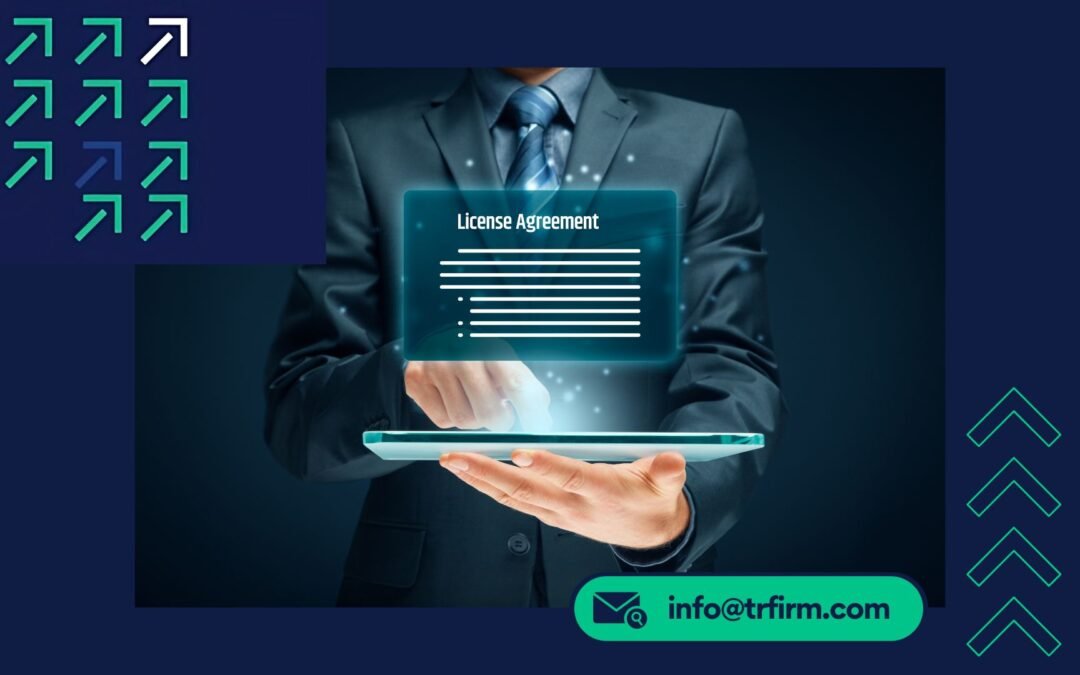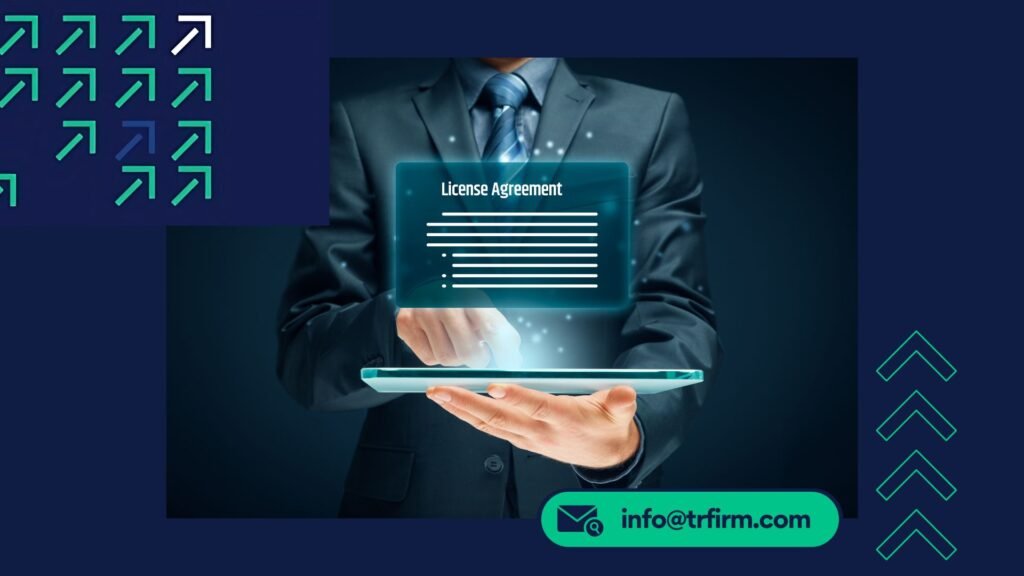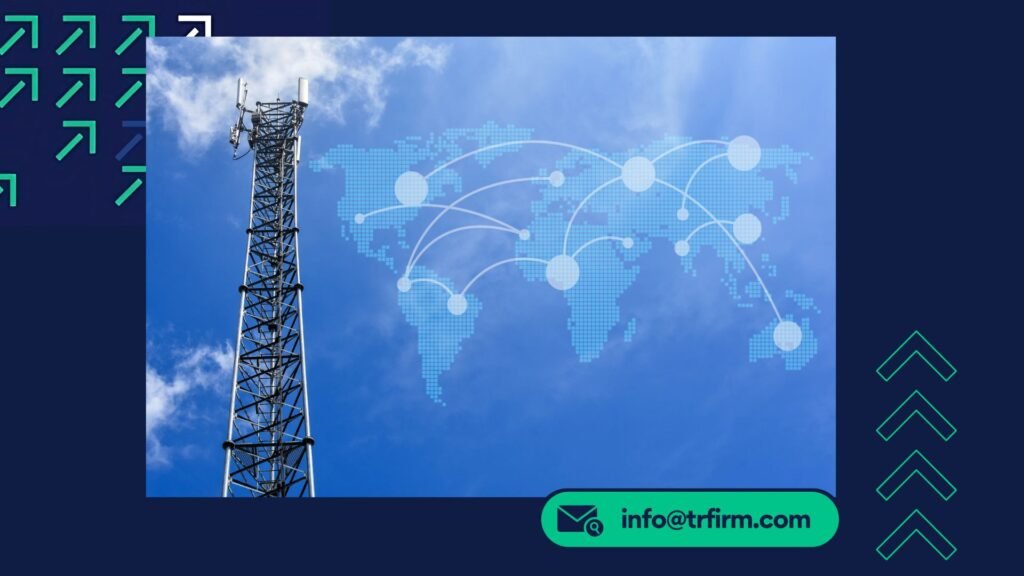
Business Licenses & Regulatory Approvals
Bangladesh Business Licenses & Regulatory Approvals (2025): The Complete TRW Law Firm Guide
Audience: founders, CFOs, plant managers, compliance heads, and foreign investors who need a one-stop, accurate map of Bangladesh’s licensing regime—including uncommon approvals such as NBFI, PSTN, factory, explosives, radiation, and more.
Outcome: a practical, end-to-end framework you can follow to scope, sequence, and execute filings without missing critical dependencies.
Need hands-on support? TRW’s team prepares the dossier, liaises with authorities, and manages renewals under a single SLA. Learn more on TRW’s Business & Corporate Services page at tahmidurrahman.com.
1) Quick start roadmap
- Form the legal entity (RJSC) → get Trade License, e-TIN, and VAT BIN.
- Assess premises & activity → obtain Fire, DoE Environmental Clearance (ECC), Factory Registration (if applicable), Boiler, Explosives/Petroleum/LPG, and Building/Occupancy approvals.
- If manufacturing or handling regulated products, secure BSTI certifications and Legal Metrology verifications.
- Layer sectoral licenses (finance, telecom/ICT, media, health/pharma, food/agri, energy).
- If importing/exporting, add IRC/ERC and (if eligible) Bonded Warehouse; appoint C\&F/Freight Forwarder.
- If operating in EPZ/Economic Zones, follow BEPZA/BEZA pathways; for expatriates, obtain BIDA work permits.
- Complete operational enablers: vehicle/route permits, ride-sharing enlistment (platforms), shipping/air operator, tour operator, etc.
- Lock in a renewal calendar, internal SOPs, and compliance controls.
All validity periods and prerequisites below are typical and may vary by the issuing authority’s circulars and project specifics.
2) Baseline setup (applies to almost every business)
Company / Partnership / Society Registration (RJSC)
- Why: creates the legal person you’ll operate through.
- Authority: RJSC.
- Legal basis: Companies Act 1994; Partnership Act 1932; Societies Registration Act 1860.
- Prerequisites: name clearance, MoA/AoA (companies), registered address, promoters’ NID/passport.
- Validity: perpetual, subject to annual statutory filings.
Trade License (local government)
- Why: permission to trade within a municipal/union jurisdiction.
- Authority: City Corporation / Municipality / Union Parishad.
- Prerequisites: e-TIN, rent deed/ownership, landlord NOC, photos.
- Validity: 1 year → annual renewal.
e-TIN (income tax)
- Authority: NBR.
- Validity: perpetual (keep profile details current).
VAT BIN (VAT registration)
- Authority: NBR (VAT Online).
- Why: mandatory for VAT compliance and most import/export scenarios.
- Obligations: monthly VAT returns; update records on changes.
3) Trade & customs
Import Registration Certificate (IRC)
- Authority: CCI\&E.
- Why: commercial imports.
- Prerequisites: TIN, BIN, trade license, bank solvency, chamber/association membership.
- Validity: 1–3 years (typical) → renewal as per Import Policy.
Export Registration Certificate (ERC)
- Authority: CCI\&E.
- Why: commercial exports.
- Prerequisites: similar to IRC.
- Validity: 1–3 years (typical).
Indenting / Buying House Registration
- Authority: CCI\&E.
- Why: sourcing/agency operations for overseas principals.
- Notes: office readiness, financial solvency, experience documentation.
4) Investment facilitation & zones
BIDA Project Registration

- Why: investment facilitation, utility linkages, certain incentives.
- Authority: BIDA.
- Prerequisites: incorporation, project profile, land/lease, director info.
- Validity: project life; amendments for scope changes.
BIDA Work Permit (Expatriates)
- Why: hire foreign professionals.
- Validity: typically 1 year, annual renewal.
BEZA Unit Approval / License (Economic Zones)
- Why: operate inside BEZA’s Economic Zones.
- Validity: project life per BEZA terms.
BEPZA Enterprise License (EPZs)
- Why: operate inside EPZs.
- Validity: project life per BEPZA terms.
5) Safety, site & building
Fire License / Fire Safety NOC
- Authority: Fire Service & Civil Defence.
- Why: premises fire safety compliance; mandatory for most public-facing or industrial sites.
- Validity: typically 1 year → renewal and inspections.
Environmental Clearance Certificate (ECC)
- Authority: Department of Environment.
- Why: environmental clearance by category (Green/Orange A/Orange B/Red).
- Prerequisites: IEE/EIA, site NOCs, layout & process descriptions.
- Validity: 1–3 years → renewal with compliance updates.
Factory Registration / License
- Authority: DIFE (Factories & Establishments).
- Why: operating a “factory” under law; worker welfare & safety controls.
- Validity: often annual renewal.
Establishment Registration (Labour)
- Authority: DIFE.
- Why: register commercial/industrial establishment (Form-2).
- Notes: employer, worker, premises data filed.
Boiler Registration / Certificate
- Authority: Office of the Chief Inspector of Boilers.
- Why: legal operation of industrial boilers.
- Notes: maker’s certificate, drawings, site readiness; periodic inspections.
Explosives / Petroleum / LPG Storage License
- Authority: Department of Explosives.
- Why: storage/use of petroleum, CNG/LPG, explosive materials.
- Notes: safety distances, tank specs, qualified personnel; annual audits common.
Building Permit & Occupancy
- Authority: RAJUK / CDA / KDA / RDA / other city development authorities.
- Why: permission to build/alter; later occupancy certificate.
- Prerequisites: architectural/structural plans, soil test, Fire/DoE NOCs as required.
6) Standards & metrology
BSTI Certification Marks (CM)
- Why: mandatory certification for specified products (food, cement, cables, etc.).
- Process: product testing, QMS review, factory audit.
- Validity: 1–3 years with surveillance audits.
Legal Metrology (weights & measures)
- Authority: BSTI (Metrology Wing).
- Why: verification/stamping of measuring devices used in commerce.
- Cycle: periodic/annual verification.
7) Finance & payments (high-regulation)
Bank License
- Authority: Bangladesh Bank.
- Why: establish a scheduled bank.
- Prerequisites: capital adequacy, promoters’ fitness & propriety, governance & risk systems.
Non-Bank Financial Institution (NBFI) License
- Authority: Bangladesh Bank.
- Why: leasing/finance company.
- Prerequisites: capital, business plan, experienced management, robust compliance.
Microcredit NGO License
- Authority: Microcredit Regulatory Authority (MRA).
- Why: operate microfinance.
- Notes: governance standards, minimum funds, reporting.
Insurance Company License (Life/General)
- Authority: IDRA.
- Why: underwriting insurance.
- Prerequisites: capital, solvency, reinsurance arrangements, fit & proper controllers.
PSP/PSO License (Payment Services/Operators)
- Authority: Bangladesh Bank.
- Why: provide payment services or operate a payment system/switch.
- Prerequisites: capital, IT/security audits, risk, AML/CFT frameworks.
Mobile Financial Services (MFS)
- Authority: Bangladesh Bank.
- Why: issue and operate mobile wallet services (bank-led/subsidiary models).
- Obligations: agent management, technology infrastructure, consumer protection.
Money Changer License
- Authority: Bangladesh Bank.
- Why: retail FX exchange booths.
- Notes: AML/CFT controls, location & security standards.
8) Capital markets
Stock Broker / Dealer
- Authority: BSEC.
- Why: trade securities on stock exchanges.
- Prerequisites: exchange membership, capitalization, compliance systems.
Merchant Banker
- Authority: BSEC.
- Why: issue management, underwriting, portfolio management.
- Notes: capital & manpower thresholds.
Asset Management Company (AMC)
- Authority: BSEC.
- Why: manage mutual funds/collective schemes.
- Governance: trustee oversight and reporting.
Credit Rating Agency (CRA)
- Authority: BSEC.
- Why: provide credit ratings; independence & methodology standards.
9) Telecom & ICT (including PSTN)
PSTN License (fixed telephony)
- Authority: BTRC.
- Why: operate fixed voice networks; interconnection & QoS required.
- Prerequisites: rollout & numbering plans, technical & financial capacity.
ISP License (Nationwide/Zone/District)
- Authority: BTRC.
- Why: provide internet services; categories vary by coverage.
- Notes: network plan, NOCs, fees; 5–10 year tenors common.
IIG / ICX / IGW
- Authority: BTRC.
- Why: international gateways for data/voice.
- Notes: specialized technical, security, and financial conditions.
VAS / IPTSP / VoIP / VSAT
- Authority: BTRC.
- Why: value-added services, IP telephony, satellite links.
- Notes: service-specific guidelines and audits.
Telecom Tower Sharing License (TowerCo)
- Authority: BTRC.
- Why: passive infrastructure sharing; EHS controls.
Certifying Authority (CA) — Digital Signatures
- Authority: Controller of Certifying Authorities.
- Why: issue digital certificates (PKI).
- Notes: CPS/CP, audits, secure PKI infrastructure.
10) Media & broadcasting
TV Channel / DTH / IPTV
- Authorities: Ministry of Information & Broadcasting (+ BTRC for spectrum where applicable).
- Why: content distribution & broadcasting.
FM Radio
- Authorities: BTRC & MoIB.
- Why: FM broadcast operations; frequency allocation and studio standards.
Cable TV Operator
- Authority: MoIB.
- Why: cable distribution licensing.
Newspaper Declaration & Registration
- Authorities: District Magistrate & DFP.
- Why: operate printing press/newspaper.
Online News Portal Registration
- Authority: Press Information Department (PID).
- Why: compliance for online news portals.
11) Health & pharma
Hospital / Clinic / Diagnostic Center
- Authority: DGHS.
- Why: private health facilities licensing; HR, equipment, bio-medical waste management.
- Validity: typically 1–3 years.
Drug License (Retail/Wholesale/Manufacturing)
- Authority: DGDA.
- Why: trade/manufacture pharmaceuticals.
- Notes: registered pharmacist, storage standards, premises compliance.
Medical Device Registration
- Authority: DGDA.
- Why: import/market medical devices; device-wise registration based on risk class.
Radiation Licenses (X-ray/CT/Industrial)
- Authority: BAERA.
- Why: use/import ionizing radiation sources.
- Notes: RCO appointment, shielding, dose monitoring; audits.
Blood Bank License
- Authority: DGHS.
- Why: collection, testing, storage, and distribution of blood and components.
12) Food & agriculture
Food Business Registration / License
- Authorities: Bangladesh Food Safety Authority (BFSA) + Local Health.
- Why: food manufacturing/processing/restaurants.
- Notes: hygiene plans, water analysis, pest control, GMP.
BSTI Halal / Product Certifications (where mandated)
- Authority: BSTI / recognized bodies.
- Why: specific food/product categories require certification.
Seed Dealer Registration
- Authority: DAE / National Seed Board.
- Validity: typically 5 years.
Fertilizer Dealer License
- Authority: DAE.
Pesticide (Retail/Wholesale) License
- Authority: DAE (Plant Protection Wing).
Fish Hatchery/Farm Registration & Health Certificates
- Authority: Department of Fisheries.
Livestock/Poultry Farm Registration & Feed Mill License
- Authority: Department of Livestock Services (DLS).
13) Energy & power
Power Generation License (incl. captive above thresholds)
- Authority: BERC.
- Notes: technical proposal, EIA, fuel/PPA arrangements; reporting obligations.
LPG (storage, bottling, distribution)
- Authorities: BERC + Department of Explosives.
- Notes: design approvals, safety distances, QRA; periodic audits.
CNG/LNG Filling Station
- Authorities: Department of Explosives (+ gas utilities).
- Notes: site layout, safety standards, utility NOCs.
14) Transport, logistics & customs
BRTA: Route Permit & Fitness (Commercial Vehicles)
- Authority: BRTA.
- Why: operate commercial vehicles; annual fitness.
Ride-Sharing Enlistment Certificate
- Authority: BRTA.
- Why: operate ride-sharing platform; local servers/KYC frameworks.
Customs Clearing & Forwarding (C\&F) Agent License
- Authority: NBR (Customs).
- Why: customs brokerage; exam, capital, and bank guarantee.
Freight Forwarder License
- Authority: NBR (Customs).
- Why: international/domestic freight forwarding operations.
Bonded Warehouse License
- Authority: NBR (Bond Commissionerate).
- Why: duty deferment for export-oriented units; bonded audits.
Shipping Agent License
- Authority: Department of Shipping.
Air Operator Certificate (AOC)
- Authority: CAAB.
- Why: commercial air services; safety & operations manuals.
Tour Operator / Travel Agency Registration
- Authority: Bangladesh Tourism Board.
15) NGO & social
NGO Affairs Bureau Registration
- Authority: NGOAB.
- Why: receive/manage foreign donations for voluntary activities.
- Notes: project-wise approvals and reporting.
16) Security & other
Private Security Service Company License
- Authority: Ministry of Home Affairs.
- Why: operate private security agency; vetting, uniforms, training, arms (where permitted).
Printing Press Registration
- Authorities: District Administration / DFP.
- Why: operate a printing press and publications.
17) Implementation playbook (how we execute this at TRW)
- Scoping call: activity mix, site plan, utilities, product list, import/export posture, workforce plan.
- Gap analysis: map all mandatory approvals; identify optional incentives (zones) and time-critical dependencies (e.g., ECC before factory license).
- Dossier assembly: constitutional docs, premises proofs, layouts, technical notes, safety studies, HR rosters.
- Parallel filings: run RJSC, tax/VAT, and DoE/Fire tracks in parallel to compress timelines.
- Premises-dependent audits: Fire, Factory, Boiler, Explosives—scheduled after installed readiness.
- Sectoral approvals: finance/telecom/health/etc. once baseline IDs exist.
- Go-live compliance: SOPs for renewals, VAT/Tax returns, safety drills, calibration (metrology), and regulatory reporting.
- Renewal calendar: 12-month rolling calendar, escalation matrix, and board reporting.
18) Typical documents you’ll need again and again
- RJSC certificate & constitutive documents (MoA/AoA/partnership deed).
- Board resolutions & specimen signatures.
- Trade license, TIN, BIN; rent deed/ownership papers; landlord NOC.
- Site layout, occupancy plan, utilities bills/NOCs.
- HR list, organogram, safety officer/RCO (as applicable).
- Bank solvency/statement; chamber/association membership.
- Technical dossiers (machinery lists, process notes), QMS/SoPs.
- Insurance covers (fire, public liability, workmen’s compensation) where relevant.
19) Sequencing & timelines (indicative)
- Entity + Trade License + TIN/BIN: 1–3 weeks depending on readiness.
- DoE ECC (Green/Orange): 2–8 weeks (EIA-heavy Red projects take longer).
- Fire, Factory, Boiler, Explosives: inspection-led; schedule and readiness drive timing (2–10+ weeks).
- Sectoral approvals (finance/telecom/health): variable and often multi-stage; build for multiple review rounds.
- IRC/ERC: typically faster once baseline IDs are in place (1–3 weeks).
TRW parallelizes tracks and prepares for inspections early to compress total duration.
20) Risk controls & recurring compliance
- Calendaring: annual renewals (Trade License, Fire, many factory/health licenses), periodic verifications (Metrology), and DoE/BERC reporting.
- Change approvals: expansions, line changes, storage additions often require fresh approvals or endorsements—plan them proactively.
- Internal audits: safety drills, extinguisher/boiler checks, PPE logs, radiation dosimetry (where relevant).
- Regulatory reporting: VAT returns, tax filings, BSEC/BB/IDRA returns for regulated entities.
- Vendor oversight: ensure contractors and logistics partners (e.g., C\&F, freight forwarders) hold current licenses.
21) Consolidated reference table (all items from the Master List)
| Category | License/Permit | Issuing authority | Typical prerequisites | Validity | Renewal/Notes |
|---|---|---|---|---|---|
| Baseline | Company/Partnership/Society Registration | RJSC | Name clearance; MoA/AoA; address; NID/passport | Perpetual | Annual filings |
| Baseline | Trade License | City Corp/Municipality/Union | TIN; rent deed/ownership; landlord NOC; photos | 1 year | Annual renewal |
| Baseline | e-TIN | NBR | NID/passport; mobile; address | Perpetual | Update on changes |
| Baseline | VAT BIN | NBR (VAT Online) | TIN; trade license; bank info; lease deed | Perpetual | Monthly VAT returns |
| Trade & Customs | IRC | CCI\&E | TIN; BIN; trade license; bank solvency; membership | 1–3 yrs | Per IPO |
| Trade & Customs | ERC | CCI\&E | TIN; BIN; bank solvency; membership | 1–3 yrs | Per EPO |
| Trade & Customs | Indenting/Buying House | CCI\&E | Office; bank solvency; experience | 1–3 yrs | Renewal |
| Investment | BIDA Project Registration | BIDA | Incorporation; project profile; land/lease; directors | Project life | Amend as needed |
| Investment | BIDA Work Permit (Expat) | BIDA | Company docs; justification; qualifications | ~1 year | Annual |
| Investment | BEZA Unit Approval/License | BEZA | Project proposal; allotment | Project life | Per BEZA terms |
| Investment | BEPZA Enterprise License | BEPZA | Allotment; plan | Project life | Per BEPZA terms |
| Safety & Site | Fire License/NOC | FSCD | Layout; extinguisher/hydrant plan; occupancy | ~1 year | Annual + inspections |
| Safety & Site | Environmental Clearance (ECC) | DoE | IEE/EIA; site NOCs; category | 1–3 yrs | Renewal with reports |
| Safety & Site | Factory Registration/License | DIFE | Building plan approval; safety/welfare facilities | ~1 year | Annual |
| Safety & Site | Boiler Registration/Certificate | Chief Inspector of Boilers | Maker’s cert; drawings; site readiness | As issued | Periodic inspection |
| Safety & Site | Explosives/Petroleum/LPG Storage | Dept. of Explosives | Site plan; safety distances; tank design | ~1 year | Annual + audits |
| Safety & Site | Building Permit & Occupancy | RAJUK/CDA/KDA/RDA etc. | Arch./structural plans; soil test; NOCs | Project life | Completion & occupancy |
| Standards & Metrology | BSTI CM | BSTI | Product tests; QMS; factory audit | 1–3 yrs | Surveillance & renewal |
| Standards & Metrology | Legal Metrology | BSTI Metrology Wing | Device presentation; fees | Annual/periodic | Stamping/verification |
| Finance | Bank License | Bangladesh Bank | Capital; fit & proper; feasibility | Perpetual | Prudential compliance |
| Finance | NBFI License | Bangladesh Bank | Capital; fit & proper; plan | Perpetual | Prudential/reporting |
| Finance | Microcredit NGO | MRA | NGO reg.; governance; capital | ~3 yrs | Renewal |
| Finance | Insurance Company | IDRA | Capital; solvency; reinsurance | Perpetual | Annual filings |
| Finance | PSP/PSO | Bangladesh Bank | Capital; systems audit; AML/CFT | Per license | Ongoing |
| Finance | MFS | Bangladesh Bank | Bank-led/subsidiary; IT; agents | Per license | Ongoing |
| Finance | Money Changer | Bangladesh Bank | Location; security; capital; AML | 1–3 yrs | Renewal |
| Capital Markets | Stock Broker/Dealer | BSEC | Membership; capital; systems | Perpetual | Compliance |
| Capital Markets | Merchant Banker | BSEC | Capital; manpower | Perpetual | Reporting |
| Capital Markets | AMC | BSEC | Capital; CIO/key personnel | Perpetual | Trustee oversight |
| Capital Markets | CRA | BSEC | Analysts; methodology; independence | Perpetual | Inspections |
| Telecom & ICT | PSTN License | BTRC | Rollout; interconnection; numbering | Per license | Per terms |
| Telecom & ICT | ISP (NAT/ZON/DIS) | BTRC | Network plan; NOCs; fees | 5–10 yrs | Per terms |
| Telecom & ICT | IIG/ICX/IGW | BTRC | Network; technical & financials | Per license | Per terms |
| Telecom & ICT | VAS/IPTSP/VoIP/VSAT | BTRC | Service-specific plan; compliance | Per license | Per terms |
| Telecom & ICT | Tower Sharing | BTRC | Coverage plan; EHS | Per license | Per terms |
| Telecom & ICT | Certifying Authority (CA) | CCA | PKI infra; CPS/CP; audits | Per license | Audits & renewals |
| Media & Broadcasting | TV Channel/DTH/IPTV | MoIB (+BTRC) | Technical plan; studios; codes | Per license | Per terms |
| Media & Broadcasting | FM Radio | BTRC & MoIB | Frequency allocation; studio plan | Per license | Per terms |
| Media & Broadcasting | Cable TV Operator | MoIB | Headend & network details | Per license | Renewal |
| Media & Broadcasting | Newspaper Declaration/Registration | DM Office + DFP | Editor/printer/publisher details | Per reg. | Updates |
| Media & Broadcasting | Online News Portal Registration | PID | Ownership & editorial info | Per reg. | As directed |
| Health & Pharma | Hospital/Clinic/Diagnostic | DGHS | Premises; equipment; HR; waste mgmt | 1–3 yrs | Renewal & inspections |
| Health & Pharma | Drug License | DGDA | Pharmacist; storage; premises | 1–3 yrs | Renewal |
| Health & Pharma | Medical Device Registration | DGDA | QMS; safety dossiers | Per product | Renewal |
| Health & Pharma | Radiation (X-ray/CT/Industrial) | BAERA | RCO; shielding; safety | Per license | Audits & renewals |
| Health & Pharma | Blood Bank License | DGHS | Equip.; specialists; SOPs | Per license | Compliance & inspections |
| Food & Agriculture | Food Business Registration/License | BFSA + Local Health | Hygiene; water; pest control | Often annual | Renewal & inspections |
| Food & Agriculture | Halal/Product Certifications | BSTI/recognized | Per scheme | As per | Surveillance |
| Food & Agriculture | Seed Dealer | DAE / NSB | Storage; technical capacity | ~5 yrs | Renewal |
| Food & Agriculture | Fertilizer Dealer | DAE | Storage; safety | Per DAE | Renewal |
| Food & Agriculture | Pesticide Retail/Wholesale | DAE (Plant Protection) | Qualified person; storage | Per DAE | Renewal |
| Food & Agriculture | Fish Hatchery/Farm & Health | DoF | Biosecurity; layout | Per reg. | Inspections |
| Food & Agriculture | Livestock/Poultry & Feed Mill | DLS | Biosecurity; waste mgmt | Per reg. | Renewal |
| Energy & Power | Power Generation | BERC | Tech proposal; EIA; fuel/PPA | Per license | Reporting/renewal |
| Energy & Power | LPG storage/bottling/distribution | BERC + Explosives | Designs; safety distances; QRA | Per license | Audits |
| Energy & Power | CNG/LNG Filling Station | Dept. of Explosives (+ utilities) | Layout; safety; gas NOC | Per license | Per terms |
| Transport & Logistics | BRTA Route/Permit/Fitness | BRTA | Vehicle reg.; fitness; route | Annual | Renewal |
| Transport & Logistics | Ride-sharing Enlistment | BRTA | Office; KYC; drivers; servers | Per enlist. | Renewal |
| Transport & Logistics | Customs C\&F Agent | NBR (Customs) | Capital; exam; bond/guarantee | Per license | Renewal |
| Transport & Logistics | Freight Forwarder | NBR (Customs) | Office; capital; experience | Per license | Renewal |
| Transport & Logistics | Bonded Warehouse | NBR (Bond) | EOU; premises; bond | Per license | Audits & renewal |
| Transport & Logistics | Shipping Agent | Department of Shipping | Office; capital; staff | Per license | Per DoS |
| Transport & Logistics | Air Operator Certificate | CAAB | Aircraft; crew; manuals | Per cert | Surveillance/renewal |
| Transport & Logistics | Tour Operator/Travel Agency | Bangladesh Tourism Board | Office; guides; compliance | Per reg. | Renewal |
| NGO & Social | NGOAB Registration | NGO Affairs Bureau | Constitution; board; clearances | Per reg. | Project approvals/reporting |
| Security & Other | Private Security Service Company | MHA | Vetting; uniforms; training | ~2 yrs | Renewal |
| Security & Other | Printing Press Registration | District Admin / DFP | Press details | Per reg. | Updates |
22) Engage TRW
TRW Law Firm — Business Licensing & Compliance Desk
Contact Numbers: +8801708000660 · +8801847220062 · +8801708080817
Emails: info@trfirm.com · info@trwbd.com · info@tahmidur.com
Global Law Firm Locations:
- Dhaka: House 410, Road 29, Mohakhali DOHS
- Dubai: Rolex Building, L-12 Sheikh Zayed Road
What we do: scope and sequencing, dossier preparation, architectural/safety coordination, submission management, inspection readiness, authority liaison, and full renewal governance. If you share your business model and site details, we’ll return a tailored license stack and filing calendar the same day, and start paperwork immediately.









